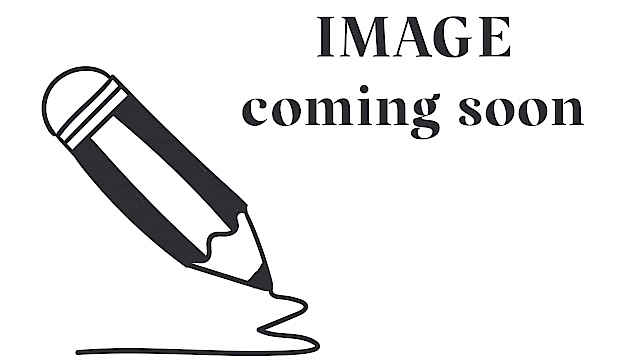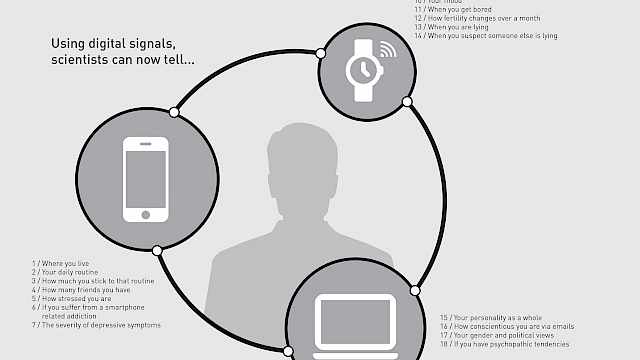Lukasz Piwek
Lukasz obtained his PhD in Psychology at the University of Glasgow where he combined solutions from computing science, cognitive psychology and psychophysics to investigate how we use body language and voice to make emotional decisions about other people in the first few seconds of interaction. He collaborated in a range of interdisciplinary projects including work with UK Border Agency (co-funded by ESRC) on a project investigating detection of suspicious behaviour and hostility from body movement. Recently he has been working on a various ways to use mobile devices, smart wearables, and online social networks in behavioural change and user profiling, with a strong focus around social psychology, cyber-psychology, and the analysis and visualisation of ‘Big Online Behavioural Data’.
CREST Outputs
Projects
Articles
Academic Publications
A simple location-tracking app for psychological research
Location data gathered from a variety of sources are particularly valuable when it comes to understanding individuals and groups. However, much of this work has relied on participants’ active engagement in regularly reporting their location. More recently, smartphones have been used to assist with this process, but although commercial smartphone applications are available, these are often expensive and are not designed with researchers in mind. To overcome these and other related issues, we have developed a freely available Android application that logs location accurately, stores the data securely, and ensures that participants can provide consent or withdraw from a study at any time. Further recommendations and R code are provided in order to assist with subsequent data analysis.
(From the journal abstract)
Geyer, K., Ellis, D. A., & Piwek, L. (2019). A simple location-tracking app for psychological research. Behavior Research Methods, 51(6), 2840–2846.
https://doi.org/10.3758/s13428-018-1164-yThe Rise of Consumer Health Wearables: Promises and Barriers
Will consumer wearable technology ever be adopted or accepted by the medical community? Patients and practitioners regularly use digital technology (e.g., thermometers and glucose monitors) to identify and discuss symptoms. In addition, a third of general practitioners in the United Kingdom report that patients arrive with suggestions for treatment based on online search results. However, consumer health wearables are predicted to become the next “Dr Google.” One in six (15%) consumers in the United States currently uses wearable technology, including smartwatches or fitness bands. While 19 million fitness devices are likely to be sold this year, that number is predicted to grow to 110 million in 2018. As the line between consumer health wearables and medical devices begins to blur, it is now possible for a single wearable device to monitor a range of medical risk factors. Potentially, these devices could give patients direct access to personal analytics that can contribute to their health, facilitate preventive care, and aid in the management of ongoing illness. However, how this new wearable technology might best serve medicine remains unclear.
(From the journal abstract)
Piwek, L., Ellis, D. A., Andrews, S., & Joinson, A. (2016). The Rise of Consumer Health Wearables: Promises and Barriers. PLOS Medicine, 13(2), e1001953.
https://doi.org/10.1371/journal.pmed.1001953Digital traces of offline mobilization
Since 2009, there has been an increase in global protests and related online activity. Yet, it is unclear how and why online activity is related to the mobilization of offline collective action. One proposition is that online polarization (or a relative change in intensity of posting mobilizing content around a salient grievance) can mobilize people offline. The identity-norm nexus and normative alignment models of collective action further argue that to be mobilizing, these posts need to be socially validated. To test these propositions, across two analyses, we used digital traces of online behavior and data science techniques to model people’s online and offline behavior around a mass protest. In Study 1a, we used Twitter behavior posted on the day of the protest by attendees or nonattendees (759 users; 7,592 tweets) to train and test a classifier that predicted, with 80% accuracy, who participated in offline collective action. Attendees used their mobile devices to plan logistics and broadcast their presence at the protest. In Study 1b, using the longitudinal Twitter data and metadata of a subset of users from Study 1a (209 users; 277,556 tweets), we found that participation in the protest was not associated with an individual’s online polarization over the year prior to the protest, but it was positively associated with the validation (“likes”) they received on their relevant posts. These two studies demonstrate that rather than being low cost or trivial, socially validated online interactions about a grievance are actually key to the mobilization and enactment of collective action.
(From the journal abstract)
Smith, L. G. E., Piwek, L., Hinds, J., Brown, O., & Joinson, A. (2023). Digital traces of offline mobilization. Journal of Personality and Social Psychology, 125(3), 496–518. https://doi.org/10.1037/pspa0000338
https://doi.org/10.1037/pspa0000338
Projects
Articles
Academic Publications
A simple location-tracking app for psychological research
Location data gathered from a variety of sources are particularly valuable when it comes to understanding individuals and groups. However, much of this work has relied on participants’ active engagement in regularly reporting their location. More recently, smartphones have been used to assist with this process, but although commercial smartphone applications are available, these are often expensive and are not designed with researchers in mind. To overcome these and other related issues, we have developed a freely available Android application that logs location accurately, stores the data securely, and ensures that participants can provide consent or withdraw from a study at any time. Further recommendations and R code are provided in order to assist with subsequent data analysis.
(From the journal abstract)
Geyer, K., Ellis, D. A., & Piwek, L. (2019). A simple location-tracking app for psychological research. Behavior Research Methods, 51(6), 2840–2846.
The Rise of Consumer Health Wearables: Promises and Barriers
Will consumer wearable technology ever be adopted or accepted by the medical community? Patients and practitioners regularly use digital technology (e.g., thermometers and glucose monitors) to identify and discuss symptoms. In addition, a third of general practitioners in the United Kingdom report that patients arrive with suggestions for treatment based on online search results. However, consumer health wearables are predicted to become the next “Dr Google.” One in six (15%) consumers in the United States currently uses wearable technology, including smartwatches or fitness bands. While 19 million fitness devices are likely to be sold this year, that number is predicted to grow to 110 million in 2018. As the line between consumer health wearables and medical devices begins to blur, it is now possible for a single wearable device to monitor a range of medical risk factors. Potentially, these devices could give patients direct access to personal analytics that can contribute to their health, facilitate preventive care, and aid in the management of ongoing illness. However, how this new wearable technology might best serve medicine remains unclear.
(From the journal abstract)
Piwek, L., Ellis, D. A., Andrews, S., & Joinson, A. (2016). The Rise of Consumer Health Wearables: Promises and Barriers. PLOS Medicine, 13(2), e1001953.
Digital traces of offline mobilization
Since 2009, there has been an increase in global protests and related online activity. Yet, it is unclear how and why online activity is related to the mobilization of offline collective action. One proposition is that online polarization (or a relative change in intensity of posting mobilizing content around a salient grievance) can mobilize people offline. The identity-norm nexus and normative alignment models of collective action further argue that to be mobilizing, these posts need to be socially validated. To test these propositions, across two analyses, we used digital traces of online behavior and data science techniques to model people’s online and offline behavior around a mass protest. In Study 1a, we used Twitter behavior posted on the day of the protest by attendees or nonattendees (759 users; 7,592 tweets) to train and test a classifier that predicted, with 80% accuracy, who participated in offline collective action. Attendees used their mobile devices to plan logistics and broadcast their presence at the protest. In Study 1b, using the longitudinal Twitter data and metadata of a subset of users from Study 1a (209 users; 277,556 tweets), we found that participation in the protest was not associated with an individual’s online polarization over the year prior to the protest, but it was positively associated with the validation (“likes”) they received on their relevant posts. These two studies demonstrate that rather than being low cost or trivial, socially validated online interactions about a grievance are actually key to the mobilization and enactment of collective action.
(From the journal abstract)
Smith, L. G. E., Piwek, L., Hinds, J., Brown, O., & Joinson, A. (2023). Digital traces of offline mobilization. Journal of Personality and Social Psychology, 125(3), 496–518. https://doi.org/10.1037/pspa0000338

